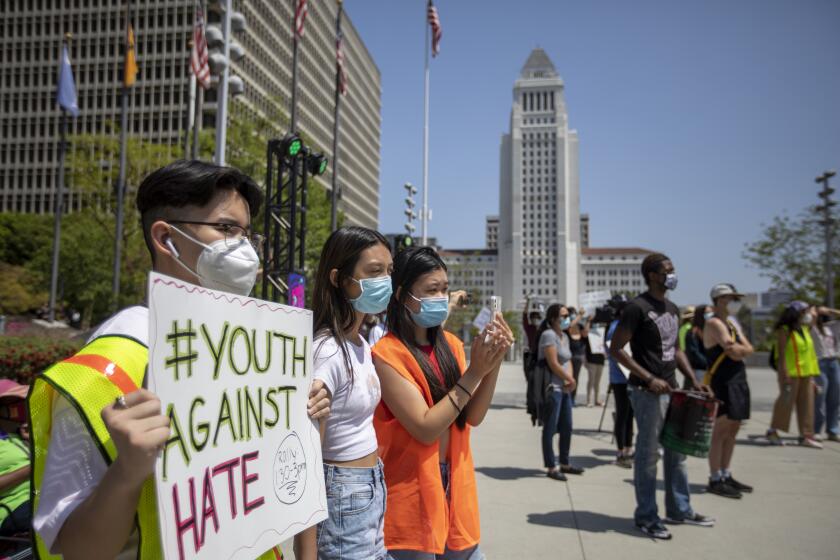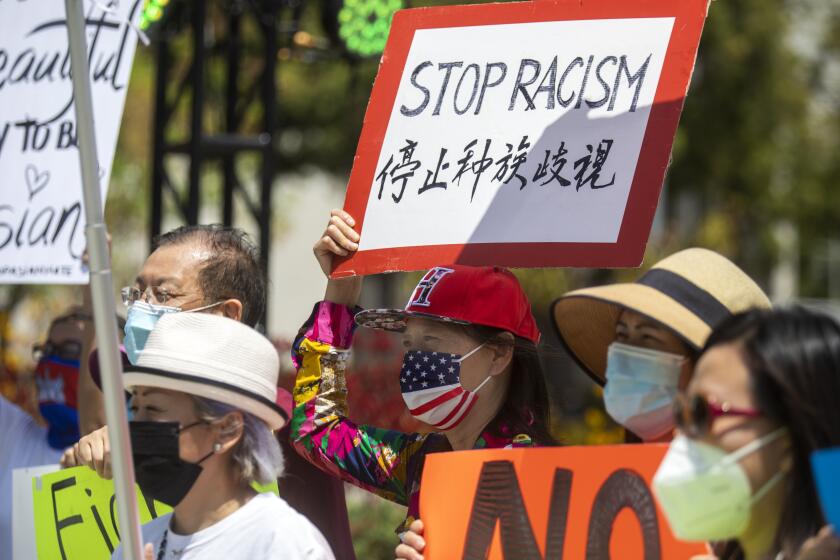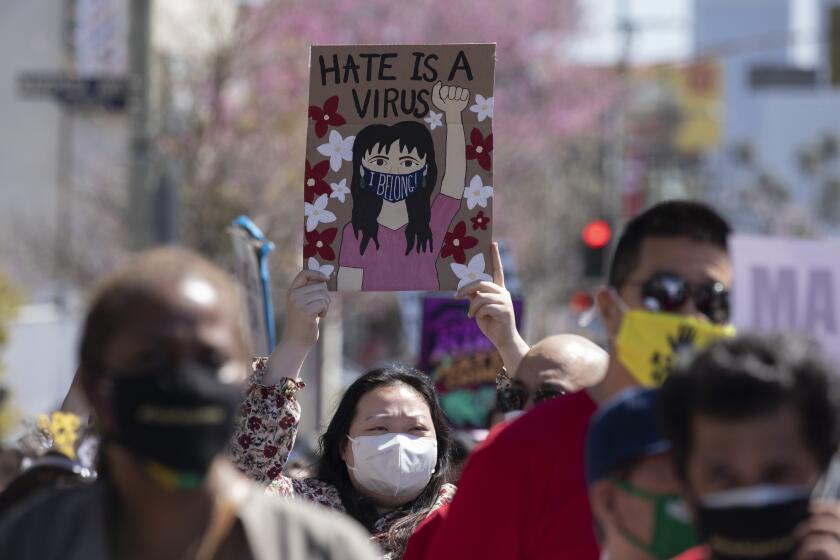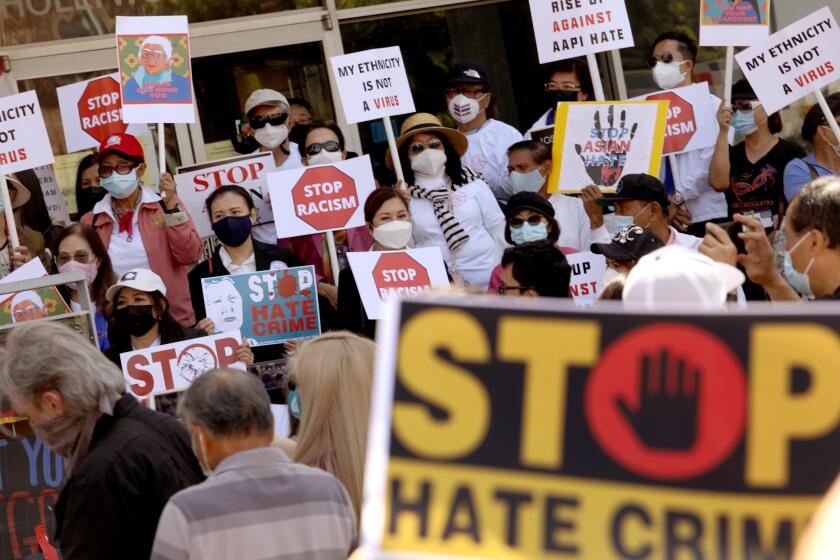A Korean man’s shocking killing on streets of L.A. sends his daughter searching for answers
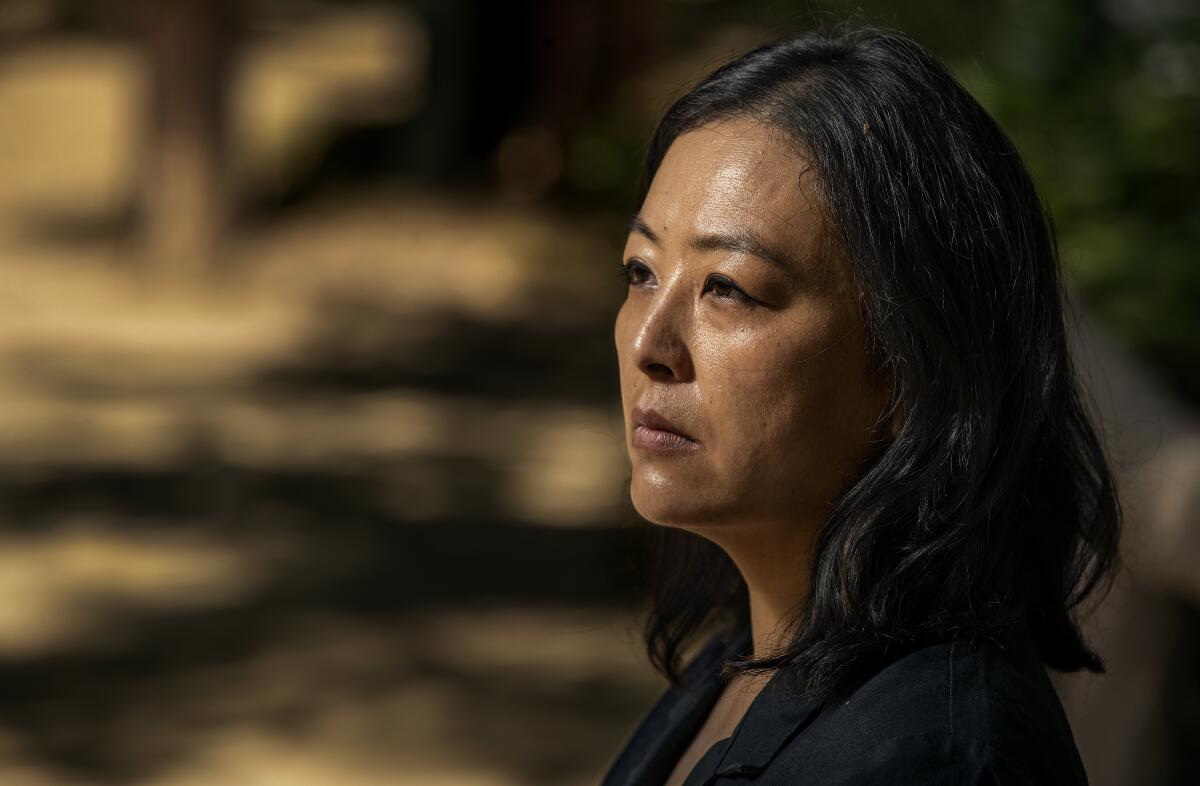
- Share via
For 30 years, Dal Keun Lee rarely took a day off work.
Before immigrating with his young family from South Korea to Los Angeles in 1991, Lee was an electrical engineer with expertise in nuclear power. But his limited English proficiency meant many corporate doors were closed to him in the U.S.
So instead, his daughter said, he took the entrepreneurial route of many immigrants and built his own electrical contracting and laundromat business from the ground up, mostly by working each day “from dawn to dusk.”
Only in recent years had Lee, 70, started to slow down and take time off. He picked up golf and had big plans to spend more time with his grandchildren.
“That’s the hardest part,” his daughter Cathy Lee said. “He had worked towards that moment. This is where he was going to get his time. It was like he was saving all that time into his bank — and then someone just wiped it out.”
About noon on May 5, Lee was sitting in his work van outside his South L.A. laundromat when a man came up behind him and stabbed him in the neck. Video captured Lee pulling himself from the van to get help and people rushing to his aid, but his wounds were too severe. He died soon after at a local hospital.
To Cathy Lee, 40, her father’s killing was so random and vicious that it at first seemed like some bizarre nightmare too outrageous to be real.
“It was completely unfathomable,” she said.
She later learned that the suspect in her dad’s killing had allegedly committed a similar attack on another Asian victim just days before. And she realized her father’s death was reflective of troubling patterns of crime and victimization that have been redefining reality for many L.A. residents in recent years, including in the Asian community.
She saw her father’s killing as another anti-Asian hate crime amid an infuriating rise in such cases. She also saw it as another example of city leaders — including embattled progressive L.A. County Dist. Atty. George Gascón — failing to keep hardworking Angelenos safe.
“It just became so much bigger than just him,” she said of her father’s death.
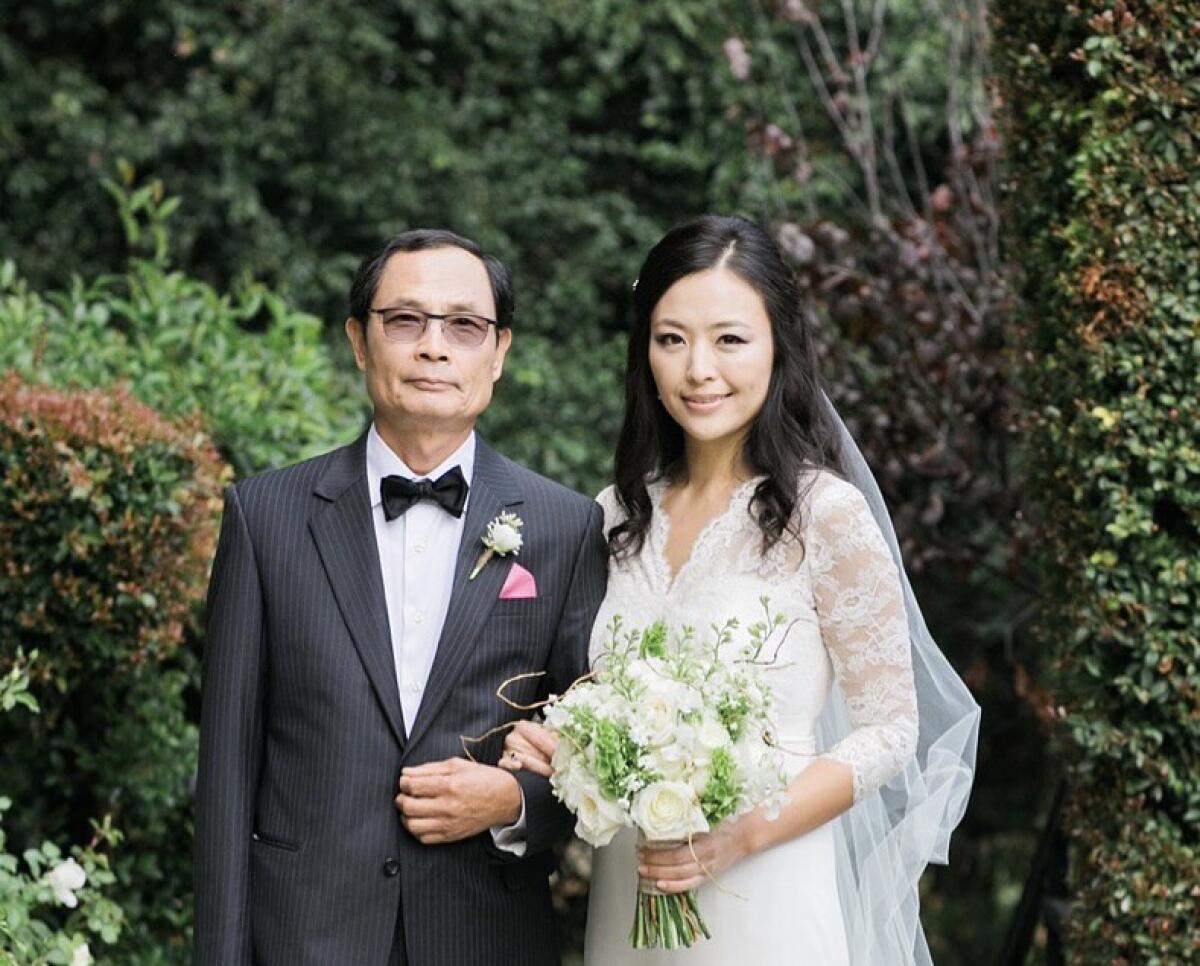
Like many immigrant kids with better language skills than their parents, Cathy Lee had often stepped in to translate or to challenge people who tried to take advantage of hers. It was a role her father trained her for, and a big part of why she studied law and became an attorney.
“I was always my dad’s advocate from day one. I was the one that kind of acted as his lawyer from when I was a very young age,” she said. “He knew that he needed someone [who could] find out what our rights are, to make sure that people don’t trample on them.”
Now, her father’s killing is her last case for him, she said. And she has many questions.
A shocking discovery
Lee’s killing was one of 176 homicides in L.A. this year, through Tuesday, according to the Los Angeles Police Department. That’s two more than at the same point last year, which ended with the most homicides in L.A. in 15 years.
The increase in violence has sparked intense debate, redefined the race for L.A.’s next mayor and spurred an effort to recall Gascón — whose critics contend is too lenient with criminal offenders.
In addition, a spike in anti-Asian hate crimes in recent years, both in L.A. and nationally, has stoked further fear in L.A.’s diverse Asian and Pacific Islander communities and raised questions about how crimes targeting those communities are investigated, charged and prosecuted.
The number of hate crimes in California rose for the third year in a row, according to an annual report from the state Department of Justice.
After Lee’s stabbing, detectives scouring the area for evidence found video of a suspect. They distributed fliers showing a young man in a distinctive hoodie and blue medical face mask, and they asked the public for help identifying him.
The detectives quickly heard from family members of 25-year-old Keonte Woods.
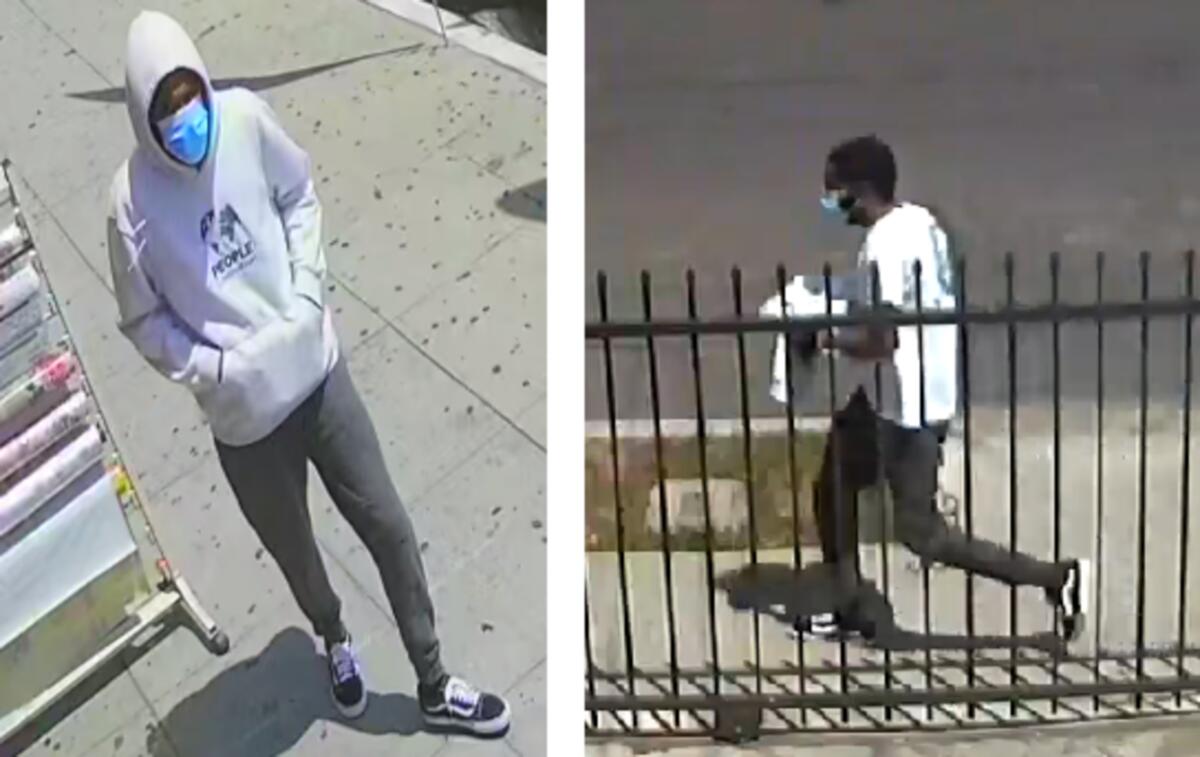
Woods’ uncle Travis Jones, who lived with him in the family home less than a third of a mile from Lee’s laundromat, said in an interview with The Times that Woods was “a quiet person who stayed to himself” until recently, when he seemed to begin struggling with mental issues that “came out of nowhere.”
Jones said his mother — Woods’ grandmother — called the police after friends sent the family the pictures, to “get him help and see what’s going on with him.”

Subscribers get exclusive access to this story
We’re offering L.A. Times subscribers special access to our best journalism. Thank you for your support.
Explore more Subscriber Exclusive content.
Woods was arrested at home soon after, on May 12, and prosecutors charged him with murdering Lee on May 16. Woods could not be reached for comment, and a public defender who represented him at an initial court hearing did not respond to a request for comment.
After the case was filed, Cathy Lee, eager to review any document she could get her hands on, went to the courthouse to pull a copy of the criminal complaint.
She expected the document to be cut and dried. Instead, it left her stunned.
There was the murder charge, as expected, but also a second charge for felony assault with a deadly weapon. While both counts sounded reasonable for her father’s case, Lee noticed that the portion outlining the assault charge listed a different victim and an earlier date than her father’s attack.
At first, she thought a prosecutor must have copied and pasted the text from a different case and forgotten to update the second charge with the correct details. Lawyer friends told her that happens sometimes and that the discrepancy was probably a clerical error.
A new poll from Cal State Los Angeles surveyed Asian American and Pacific Islander voters on homelessness, anti-Asian racism and hate crimes.
But it wasn’t.
The second charge concerned a separate attack that had occurred less than a week before her father was killed. Neither police nor prosecutors had mentioned it to her or her family before they had lumped the two cases into one.
Her shock made way to anger, she said, as the details of the earlier attack — on the campus of USC, her alma mater — became clearer.
Attack on campus
Late on the night of April 30, a 20-year-old mathematics student from Shanghai who goes by Jaime — and who asked The Times not to use his full name because he fears the suspect and doesn’t want his family in China to worry about him — was studying in a courtyard when he noticed a man in a hoodie lingering around.
Jaime had studied in the courtyard frequently, and he said he trusted USC and campus security to keep him safe there. Another student was studying there as well. Maybe, Jaime thought, the hooded man also was a student, or someone waiting for a friend.
“I feel like, ‘Oh, he’s just maybe a stranger on campus but not a bad guy,’” he recalled. He stuck with that line of thinking even after the man moved behind him, out of his line of sight.
Then, suddenly, he felt the man rush up from behind and stick something sharp to his neck, he said. He instinctively grabbed at the object with his right hand, pulling it away from his neck before it cut him there, and the man ran off, he said.
Jaime, whose hand was injured but not badly, said he believed the man had meant to kill him.
The Los Angeles County Commission on Human Relations on Wednesday released a special report on anti-Asian hate crime in LA County in 2020. The report revealed that anti-Asian hate crimes rose 76% from 25 to 44 in 2020, the largest number of anti-Asian hate crimes reported since 2001.
Jaime said he and the other student in the courtyard went together to campus police and reported the incident. Not long after, campus police said they had a suspect in custody. Jaime said he went with officers and confirmed in person that the man — identified later as Woods — was the one who had attacked him.
Jaime said he was relieved Woods had been caught, with what Jaime was told was a sharpened metal hair pin still on him. He said he assumed Woods would be held in custody until trial, given how close he’d come to serious injury.
Unbeknownst to Jaime, Woods was released instead.
According to the LAPD, which was brought in by campus police to handle the investigation, detectives presented a case for felony assault with a deadly weapon against Woods to prosecutors in Gascón’s office, but the prosecutors rejected the filing. Instead, they passed it on to the city attorney’s office for misdemeanor consideration on May 4.
Lee was killed the next day.
‘A pattern of conduct’
When police and prosecutors realized Woods was the suspect in Lee’s killing, the attack on Jaime took on a new light.
According to LAPD Det. Larry Burcher, detectives “noted the similarities” between the two attacks with alarm, and asked prosecutors to reconsider filing a felony charge in the attack on Jaime when they presented the murder case in Lee’s death.
They also asked prosecutors to wrap the two cases into one, Burcher said, in order “to show a pattern of conduct by Woods, which strengthens both cases during any future prosecution.”
Truly combating racism requires us to take on bigger political questions that we Asian Americans do not all agree upon.
Prosecutors agreed and contacted the city attorney’s office on May 16 to say they wanted the USC case returned to their office. They filed the joint felony case the same day.
In a statement to The Times, Gascón’s office called Lee’s killing “horrific,” and said Woods would be held accountable.
“That we can promise,” the office said.
The office said prosecutors had not initially charged Woods with a felony in the USC attack because Jaime was not seriously injured, because Woods didn’t have a criminal history at the time and because the only weapon he had was the hairpin.
Prosecutors said they used the same “threshold” for determining what constitutes a felony assault as under previous administrations. They said the D.A.’s office “could only charge the assault as a felony if Mr. Woods used force likely to produce great bodily injury or used a deadly weapon.” At the time, they said, they “did not believe the evidence was sufficient to establish [the hairpins] were used or intended to be used as deadly weapons.”
While the circumstances of the attack on Jaime hadn’t changed with Lee’s killing, prosecutors viewing both attacks together “identified a pattern of conduct that elevates the seriousness of the initial assault” and warranted its refiling as a felony, the office said. And, while police said there was no specific evidence to suggest either attack was motivated by anti-Asian hate, the D.A.’s office said it is now considering the possibility that they were.
“Like our partners in the Asian American community, we are concerned about Mr. Woods’ pattern of alleged attacks that appeared to target Asian Americans,” the D.A.’s office said.
Jones, Woods’ uncle, said he hadn’t been aware of the incident at USC. He said he wished his nephew had been given more help after his first arrest.
He said Woods had graduated high school and begun taking college courses before dropping out. He said his nephew had started “going to sleep at weird, odd times” and “walking the streets at weird hours.”
Something, he said, was clearly wrong.
‘It’s not a robbery’
Jaime only learned of Woods’ release and Lee’s killing when Cathy Lee found him online and contacted him directly, he said.
The second attack cemented his belief about the motive in his own, he said.
“The suspect, he didn’t ask me for anything and didn’t say a word,” Jaime said. “It’s not a robbery. It must be some kind of hate.”
Cathy Lee said Jaime’s attack should have been taken more seriously, and would have been if Jaime wasn’t “a powerless Chinese international student.”
Charging Woods with a misdemeanor only emboldened him to seek out another Asian victim, she said.
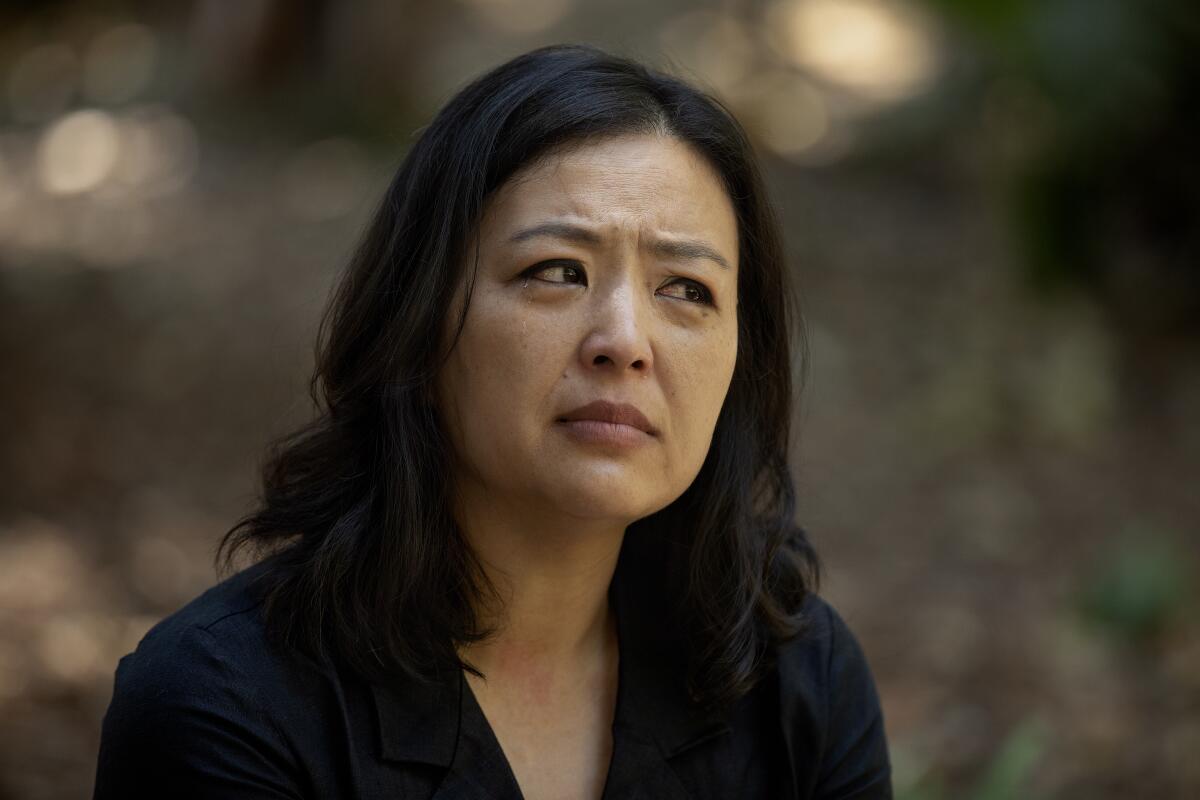
Lee said she has supported criminal justice reform, particularly since George Floyd’s murder in 2020. She said she believes there are systemic injustices against Black and brown people that need correcting. And she said she doesn’t know if the D.A.’s office under Gascón’s predecessor would have done anything differently in assessing Jaime’s case.
Regardless, she said, she blames Gascón for allowing her father’s alleged attacker back on the street, and has joined others in the city who have cited similar cases to push for his recall.
Lee has thought often in recent days about her father’s journey from a rural part of Chungcheongbuk-do province in South Korea, to the bigger city of Bucheon where she spent her early childhood, to L.A. and all its promise for a better life for her and her brother — something her father prized more than anything, she said.
She keeps thinking about him finally reaching the point in life where he could relax and enjoy all he’d built.
“He should be here with us right now, spending time with us and his grandchildren, eating his favorite food and wine, and planning his golf outings with friends,” Lee wrote in his eulogy.
“But just like that, he’s gone, and we’re not sure where we go from here.”
More to Read
Sign up for Essential California
The most important California stories and recommendations in your inbox every morning.
You may occasionally receive promotional content from the Los Angeles Times.
